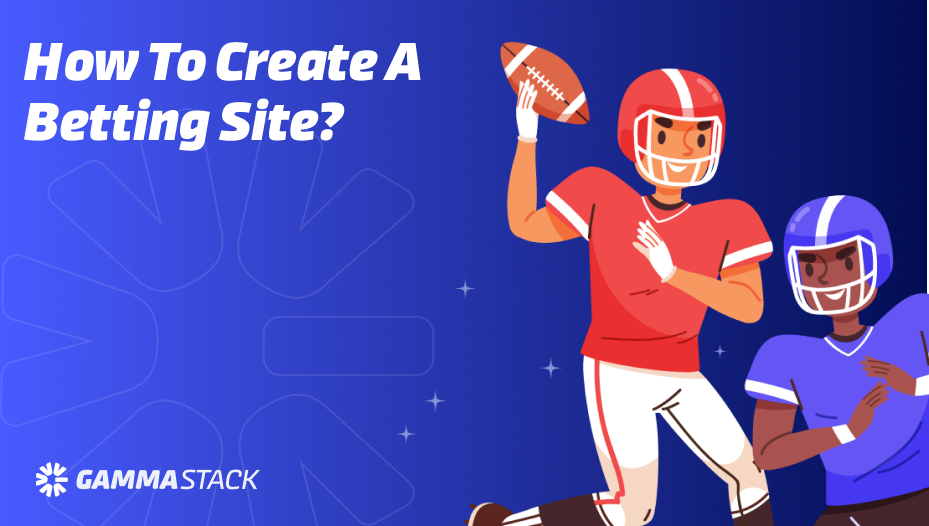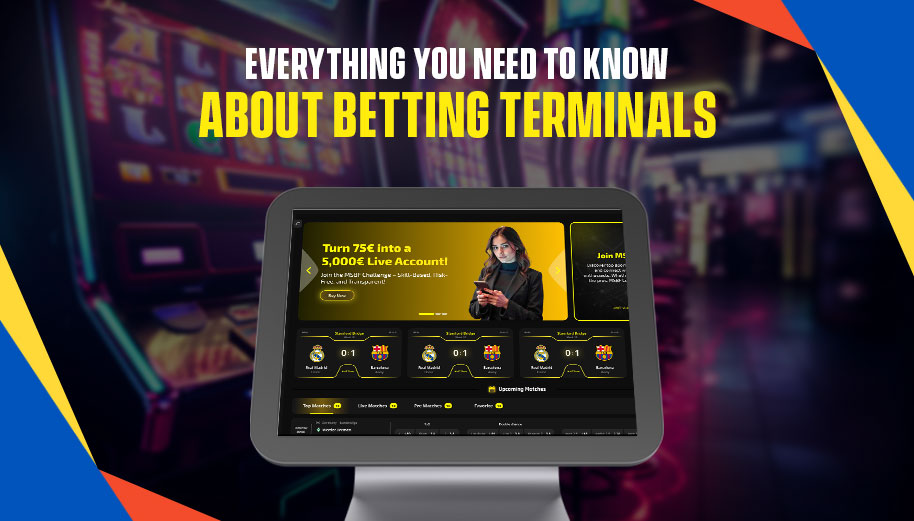
TABLE OF CONTENTS
- What is Retail Betting?
- How does Retail Sports Betting Work?
- Types of Retail Betting Venues & Retail Bets
- Pros & Cons of Retail Betting
- Retail Betting vs. Online Betting: An In-depth Comparison
- Legal Landscape of Retail Betting
- Technological Innovations & Future Trends of Retail Sports Betting
- Develop Retail Betting Software with GammaStack
- FAQs on Retail Betting
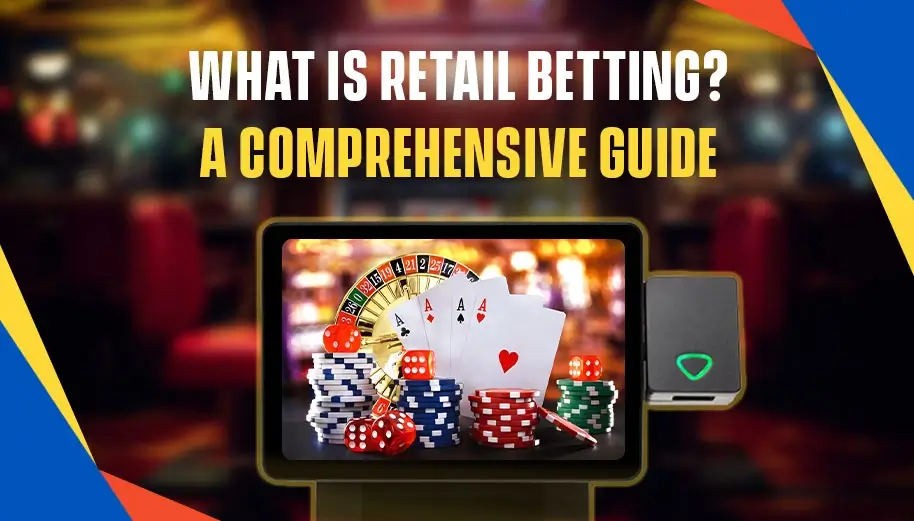
Have you ever seen players placing a bet at a shop on their favorite team and waited to see if they win? That’s retail betting — easy, fun, and happening! Everything occurs in person from watching your player’s favorite team play onscreen, the odds changing in real-time, placing the bets with the buzz of the crowd. It is just a modern form of traditional betting. You can imagine retail betting having similar essence as depositing and withdrawing money from an ATM.
This blog aims to provide all the crucial information on retail sports betting from how it works to the future prospects.
So, let’s keep it rolling!
What is Retail Betting?
How does Retail Sports Betting Work?
Types of Retail Betting Venues & Retail Bets
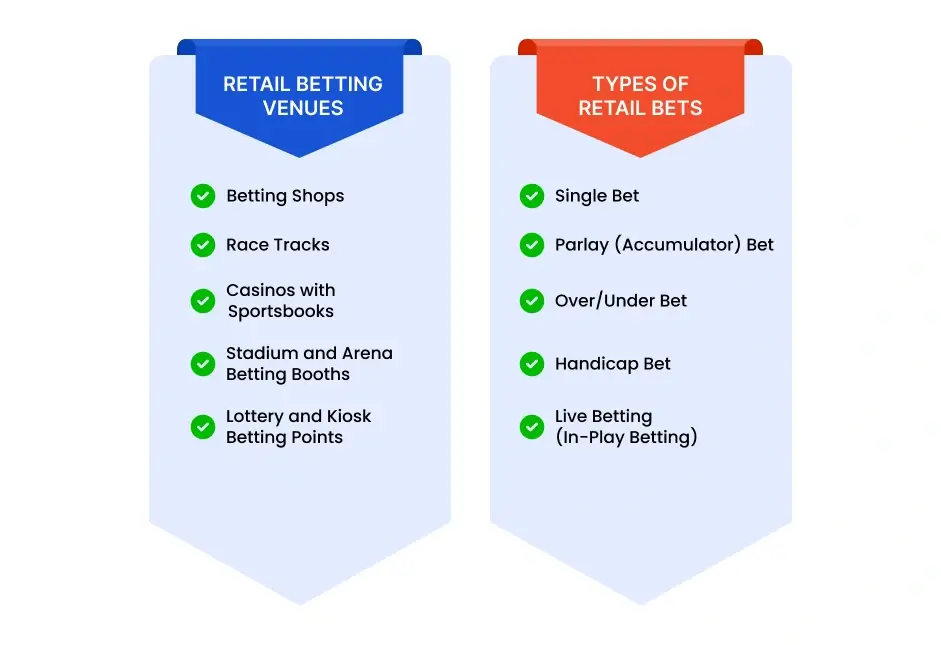
Retail betting takes place at physical outlets where punters place bets in person. Such outlets offer an instant and social way of betting on sports, horse races, and other events. The following are the different retail betting outlets you can consider for your retail betting business and the bets players can place there.
Retail Betting Venues

Betting Shops
These are small stores where players walk in, check the odds on screens, and place bets at the counter. Staff members help with bets, and many shops have TVs to show live games and races.

Race Tracks
Race tracks are popular for betting on horse and greyhound races. Bettors watch races live and place bets before or during the event, that is pre-match betting and in-play betting respectively. Some tracks also offer betting on other sports.

Casinos with Sportsbooks
Some casinos have a sportsbook area where bettors can place bets on various sports. These areas often have large screens, comfortable seating, and food services, making the experience more enjoyable.

Stadium and Arena Betting Booths
Some stadiums and arenas have booths where fans can bet on games while watching live. This is common in countries where sports betting is legal.

Lottery and Kiosk Betting Points
In some regions, punters can place sports bets at lottery outlets or self-service kiosks in malls, airports, or convenience stores. These offer a quick and easy way to bet.
Types of Retail Bets

Single Bet
The simplest bet, where bettors place money on one outcome, such as a football team winning a match.

Parlay (Accumulator) Bet
A bet combining multiple selections or bets into one. To win, all selections of the player must be correct. This type offers bigger payouts but is harder to win.

Over/Under Bet
A bet on whether the total points or goals in a game will be over or under a set number.

Handicap Bet
The bookmaker gives an advantage or disadvantage to a team to make the game more balanced.

Live Betting (In-Play Betting)
Placing bets in real-time while the game is happening, adjusting based on live action and changing odds.
Pros & Cons of Retail Betting
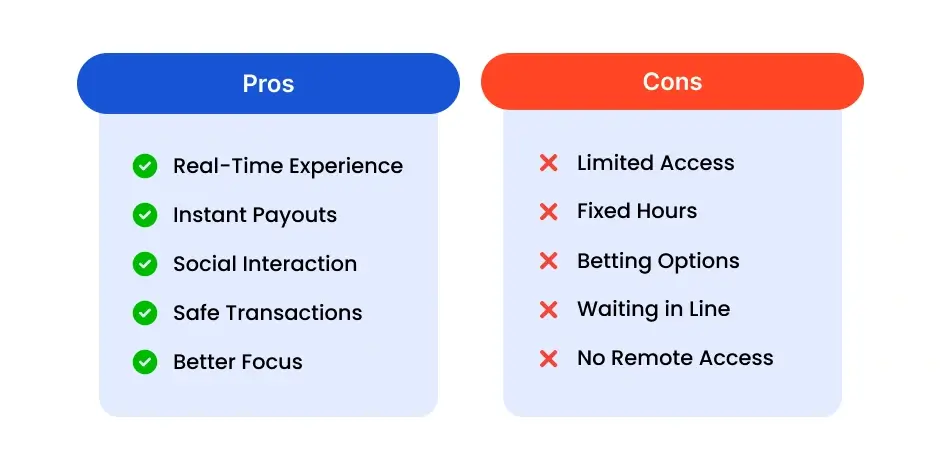
Pros

Real-Time Experience
Betting in a shop or casino gives players the thrill of placing wagers in person. Bettors can watch live games, check the odds on big screens, and feel the excitement.

Instant Payouts
When your players win, they don’t have to wait for the money. All players need to do is just walk up to the counter and collect the cash.

Social Interaction
Retail betting brings people together. Your players can discuss strategies, share tips, and enjoy the game with fellow bettors.

Safe Transactions
Since payments are made in cash or through official systems, your players don’t have to worry about online fraud.

Better Focus
With no online distractions, your players can concentrate on their bets without pop-up ads or notifications.
Cons

Limited Access
Bettors have to visit a physical location to place a bet, which may not be convenient for everyone.

Fixed Hours
Unlike online betting, retail shops have opening and closing times. If players miss the hours, they can’t place a bet.

Fewer Betting Options
Some retail sportsbooks may not offer as many betting markets or live betting features as online platforms.

Waiting in Line
On busy days, your bettors might have to stand in long queues just to place a bet.

No Remote Access
Unlike online betting, bettors can’t place a wager from home or on the go.
Retail Betting vs. Online Betting: An In-depth Comparison
- Parameters
- Retail Betting
- Online Betting
- Convenience
- Requires visiting a betting shop or casino
- Available anytime, anywhere with internet access
- Social Experience
- Offers a lively, interactive environment with fellow bettors
- Mostly solo, but some platforms offer live chat and forums
- Accessibility
- Limited to physical locations; not available everywhere
- Accessible on mobile, tablets, and desktops worldwide
- Betting Options
- Offers standard bets like moneyline, parlays, and over/under
- Provides a wider range, including live betting, prop bets, and esports
- Speed & Ease of Use
- Slower due to manual processes at counters
- Instant betting with a few clicks on an app or website
- Live Betting
- Limited or unavailable; depends on the shop’s setup
- Fully available with real-time odds and quick updates
- Payment Methods
- Cash is the primary mode; some accept cards
- Supports multiple payment options, including e-wallets, cryptocurrencies, and bank transfers
- Bonuses & Promotions
- Rare or minimal promotions
- Frequent bonuses, free bets, and loyalty rewards
- Security
- Physical security is strong but risks like theft exist
- Uses encryption and authentication for data security. However, online fraud risks exist
- Customer Support
- In-person support available
- Live chat, email, and phone support 24/7
- Market Reach
- Limited to local bettors
- Global access with international betting markets
- Regulations & Compliance
- Must follow local laws; licenses required
- Must comply with online gambling regulations, which vary by country
Legal Landscape of Retail Betting
Operators must get a betting license to run a retail sportsbook in most locations. The license ensures they are following local law, remitting taxes, and giving fair betting odds. In the UK, as an example, the UK Gambling Commission regulates all betting shops. In the US, states set their own rules and some states allow retail betting while others do not.
Taxes and fees are also part of the legal process. Licensed sportsbooks are obligated to pay the government a share of their profits. This is paid to help support public services and to maintain the betting business running lawfully. In some countries, gamblers also pay a small tax on their winnings.
One of the most crucial rules is responsible gambling legislation. Many states require sportsbooks to limit bets, offer schemes of self-exclusion, and provide help to gamblers who are having trouble. Betting retail outlets generally display signs and information about responsible gambling.
Technology is also tied to legality. There are certain countries that make betting terminals keep track of all their bets to be audited. There are countries that use geo-location software to place bets within permitted areas. Retail betting legislation constantly evolves as governments revise guidelines to align them with trends in the industry. Operators are required to remain vigilant on the latest legislation to prevent fines or having their licenses revoked. To be successful when opening a retail betting business, having the right license and working with experts who know the law is essential.
Explore Interesting Blogs from Different Categories
Technological Innovations & Future Trends of Retail Sports Betting
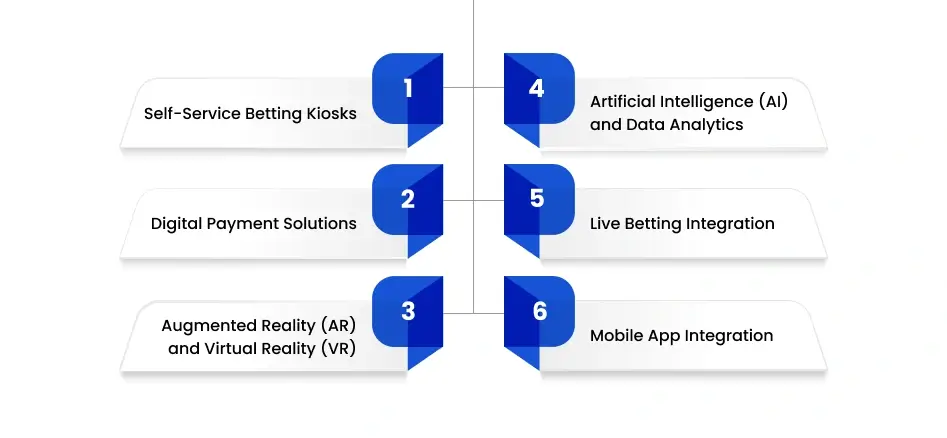

Self-Service Betting Kiosks
Most betting outlets these days use self-service kiosks. These machines allow customers to place bets immediately without having to join queues. They offer live odds, multiple bets, and instant-ticketing. Kiosks also allow operators to save labor costs and improve customers' experience.

Digital Payment Solutions
Cash is no longer the exclusive way of betting. Digital payment methods are now being accepted by the majority of retail sportsbooks, including mobile wallets, prepaid cards, and even cryptocurrencies. This makes the transactions faster and more secure and limits risks involved in handling cash.

Augmented Reality (AR) and Virtual Reality (VR)
AR and VR are adding a new dimension to retail betting. AR is being leveraged by certain sportsbooks to overlay live statistics and betting odds onto screens, giving bettors live insights. VR, on the other hand, can offer an immersive betting experience for sports betting, as bettors get to experience the sensation of being at the game while betting.

Artificial Intelligence (AI) and Data Analytics
AI is playing an important role in personalization of the betting experience. AI systems learn customers' behavior and suggest bets based on their interests. Data analysis also helps bookmakers to provide better odds, detect fraud, and manage risks more effectively.

Live Betting Integration
One of the major trends among retail sportsbooks right now is live or in-play betting. Through advanced software, punters can place bets while the game is being played. It makes the game more exciting and allows them to adjust bets based on live events.

Mobile App Integration
Most sportsbooks now have mobile apps tied to their physical locations. Players can check odds, make their picks, and generate betting slips before they get to the store. There are even apps that facilitate instant betting through the use of QR code scanning at kiosks.
Looking To Launch The Most Engaging Retail Betting Software?
Develop Retail Betting Software with GammaStack
Having retail betting software from GammaStack gives you an easy and efficient solution for your betting business. Our software supports real-time odds, secure payment gateways, and easy betting at physical locations. We give you features including bet slip printing, self-service kiosks, and easy cashier handling. With 13+ years of experience and 80+ successful sportsbooks launched by far, GammaStack gives you rapid setup and stable performance. Our experts customize the software as per your needs, whether you are a small shop or big sportsbook. Have a safe, scalable, and full-fledged solution to grow your retail betting business confidently.
FAQs on Retail Betting
GammaStack’s software makes retail betting simple and efficient with -
- Fast Transactions
- User-Friendly Interface
- Secure System
- Custom Features
- And More!
GammaStack provides advanced retail betting software that helps businesses -
- Attract more players via engaging features and easy-to-use systems
- Improve operations utilizing automated processes for faster service
- Stay competitive with regular updates with the latest trends
- Ensure security implementing strong encryption to protect transactions
A good retail betting shop should include -
- Multiple Betting Options
- Live Odds Display
- Fast Payment System
- Easy Customer Support
- Reliable Software
Retail betting shops make money by -
- Odds Margins: Adjusting odds to ensure a profit
- Losing Bets: Keeping money from bets that don’t win
- Service Fees: Charging small fees for some transactions
- Multiple Bets: Encouraging more bets to increase revenue
- Promotions: Offering deals that attract more players but maintain profitability
To start a retail betting business, you need -
- Legal approval to operate
- A shop with enough space
- A retail betting software to manage bets and payouts
- Trained employees for smooth operations
- Help for players with questions or issues
